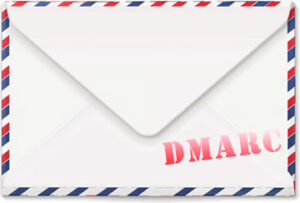Managed DMARC Service, Managed BIMI, DKIM and SPF
|
DMARC Package Options |
||||
|---|---|---|---|---|
|
Domain-based Message Authentication, Reporting and Conformance, a technical standard that helps protect email senders and recipients from advanced threats. DMARC |
||||
|
DKIM is a standard email authentication method that adds a digital signature to outgoing messages. DKIM |
||||
|
SPF (Sender Policy Framework) is an email authentication standard that helps protect senders and recipients from spam, spoofing, and phishing. SPF |
||||
|
Eliminates the "More than 10 SPF lookups" problem + auto-updates to SPF record when 3rd parties change their sender IP address. SPF Flattening |
||||
|
Includes ongoing 24/7/365 technical support, including support for all three types of DMARC policy compliance. Fully Managed |
||||
|
Aggregate and forensic reporting in real-time including historical data. Includes charts, graphs, custom domain views and groups, XML export functions, and other DMARC reporting tools. Robust Reporting Tools |
||||
|
Gain access to an always-available web-based DMARC dashboard to help eliminate the guesswork when working on your DMARC policy. Dashboard |
||||
|
Send requests to remote mail servers to divert suspicious emails to a separate folder in the recipient's mailbox. Deliver mail to the recipient's spam or other email folder for examination. Used when working towards your goal of a DMARC reject policy. Quarantine Requests |
||||
|
Send requests to remote mail servers to completely reject mail that spoofs your domain's email addresses. Increase brand trust, safety and security for your valued recipients. Reject Requests |
||||
|
Aggregated reports provide valuable information about how your domain is being used and authenticated across remote recipient email servers and contain data about email traffic, authentication results, and sending sources. Uusually sent daily or by a set frequency. Aggregate Reports (rua) |
||||
|
Forensic reports provide valuable valuable information about individual email messages that failed DMARC authentication, including message email headers and body. Forensic reports are sent immediately after the detection of an email that fails DMARC authentication. Forensic Reports (ruf) |
||||
|
Enhance email security and improve brand recognition in the inbox. Displays your digitally signed, registered trademark and certified brand logo on genuine emails. BIMI requires a DMARC policy of p=reject. BIMI |
||||
|
A VMC Certificate is a required component of BIMI that validates the association between a brand's logo and it's domain. The recipient's mail service and / or email app will show the brand's BIMI logo when a VMC certificate is issued. VMC requires a DMARC policy of p=reject. VMC Certificate |
||||
|
Historical email tracking data, filtered views, and graphs help you track your progress to full DMARC compliance. Dashboard History |
None | None | 90 Days+ | 1 Year+ |
|
These are the available DMARC modes that are supported based on your desired Managed DMARC plan. Unmanaged DMARC customers can change this policy, but DMARC dashboard access, RUA, RUF, VMC, BIMI, and technical support is not included on unmanaged accounts. Policy Support |
p=none | p=none | p=none p=quarantine p=reject |
p=none p=quarantine p=reject |








